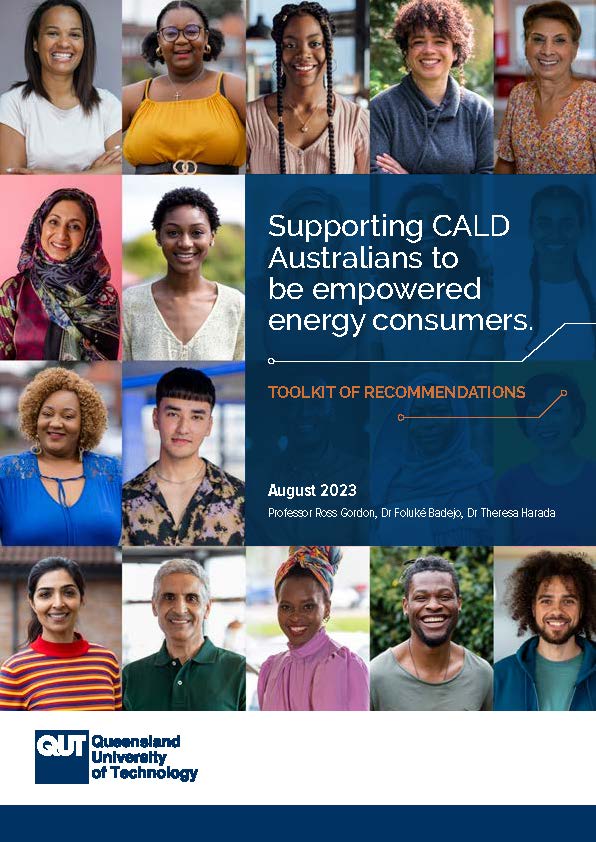Research conducted by a team at the QUT Business School has focused on how culturally and linguistically diverse energy consumers can be better supported to manage their energy use.
The project team led by Professor Ross Gordon with Dr Foluké Badejo and researcher Dr Theresa Harada, all from the QUT School of Advertising, Marketing and PR, have recently launched a digital toolkit of recommendations for supporting culturally and linguistically diverse (CALD) Australians to become empowered energy consumers.
Professor Gordon said the project, was funded by Energy Consumers Australia.
“They are the leading energy consumer advocacy organisation in the country and their website has loads of very useful information and advice for residential and small business energy consumers. I encourage everyone to check it out and make use of their resources,” Professor Gordon said.
“Among the great work that they do is to run a regular research grants program which is how we carried out this study.”
Professor Gordon said the project featured three stages.
“Stage one was a text analysis of how current narratives produced by Australian energy market stakeholders represent and engage CALD energy consumers,” he said.
“The findings from the text analysis demonstrated how existing energy market narratives fail to represent and engage CALD energy consumers.
“Instead, they portray an image of the average Australian energy consumer as a green hero who is rational, male, highly educated and informed, wealthier, from a non-CALD background and who is individually responsible and capable for managing their own energy use sustainability and efficiently to support the clean energy transition.”
Professor Gordon said for stage two, the team did qualitative interviews and video ethnographies with CALD energy consumers about their everyday lived experiences and narratives of energy consumption.
“The findings demonstrated how the dominant energy market narratives from stage one contrast significantly with the everyday lived experiences of CALD consumers.

“The research found that CALD energy consumers feel unrepresented in energy policy and market narratives.
“They felt they were disempowered due to absence of multi-lingual information, inaccessibility of accurate monitoring and billing, scepticism about energy policy, low engagement with CALD communities by energy market actors, and lack of trust towards retailers,” Professor Gordon said.
Dr Badejo identified that CALD consumers often reported that they faced difficulties caused by high energy costs and bill shock.
“They also reported lower levels of energy literacy and understanding of energy bills, difficulties comparing market offers,” she said.
Dr Harada stated that CALD energy consumers also “… listed further frustrations about how to plan for a sustainable future, and low engagement with environmental responsibility to prioritising their challenges associated with everyday life.”
Professor Gordon said for the final stage of the research the team developed a co-design of recommendations for supporting and empowering CALD energy consumers.
“We came up with a set of recommendations, which are communicated in the toolkit, to identify the things that Australian energy market actors must address.”
The research team came up with the following ‘to-do’ list for Australian energy market actors:
- Develop representative energy narratives for CALD consumers.
- Foster community engagement and partnerships with CALD populations.
- Improve support for accurate and understandable energy billing, consumption monitoring and tracking.
- Familiarisation and improved targeting of energy policy and programs with CALD consumers.
- Improving the cultural competency of organisations working in the Australian energy market.
- Supporting CALD consumers to be energy efficient while maintaining comfort, health and well-being through strategic social marketing behaviour change programs.
Main image: Pic credit: Anton Petrus, Getty Images. Researchers: (from top) Professor Ross Gordon, Dr Foluké Badejo and Dr Theresa Harada.
Visit: Energy Consumers Australia








